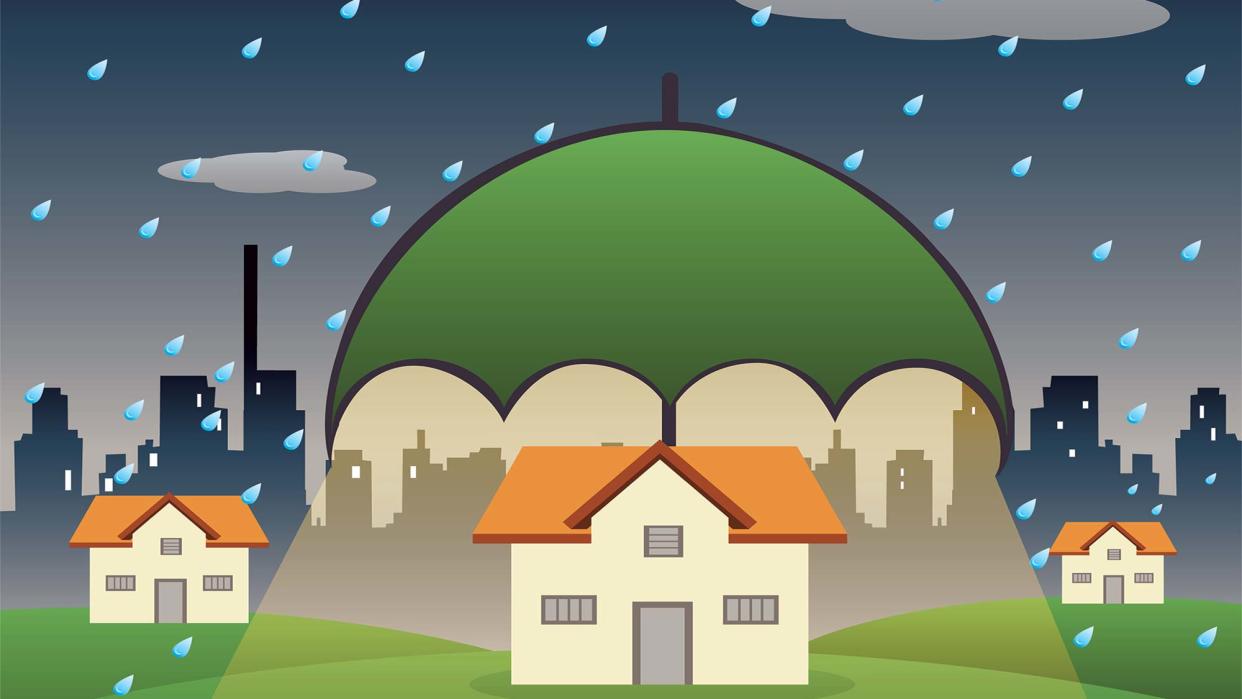How an Umbrella Insurance Policy Could Save You From Financial Ruin
So you’re nearing the end of your long, emotional, complicated—and did we mention long?— home-buying process, and you know that with great home-buying power comes great home-buying responsibility: You’ve got to protect your family and this massive new asset of yours.
You need homeowners insurance.
Of course you’ll want a home insurance policy to cover you in case of disaster. You already knew that, right? But in the case of major accidents or incidents on your property, you might find you need a whole lot more than what your traditional home insurance policy can offer.
This is where a personal umbrella policy comes in. It’s a kind of liability insurance that goes above and beyond the liability limits of your homeowner’s policy, covering you against lawsuits for bodily injury or property damage that you or household family members cause to other people.
Liability insurance, at a glance
Your policy comes with a certain amount of liability coverage that will pay for both the cost of defending you in court and any court awards, up to the limit stated in your policy documents.
For example, if you’re sued because someone slips and falls on your icy driveway and is awarded $150,000, the liability portion of your home insurance policy provides coverage—up to the limits of your policy.
Liability coverage can also pay for damage to someone else’s property caused by your pets or kids.
“So if your son, daughter, or dog accidentally ruins a neighbor’s expensive rug, you’re covered,” says Loretta Worters, vice president of communications for the Insurance Information Institute.
But if your pet or kids destroy your rug, you’re out of luck—can you imagine how many claims there would be if liability insurance covered everything your kids ever destroyed in your house?
Liability limits generally start around $100,000. That sounds like a big chunk of change, but in the event of a major incident it might not be enough. And you might not be able to purchase a sufficient amount of liability insurance on a traditional home insurance policy, Worters cautions.
That’s where a personal umbrella policy comes in.
When to open your umbrella
If you have significant assets—that high-value new home, for one, or a hefty bank account, or your own business—you should definitely consider an umbrella policy.
But even those with a modest income or home value might want to consider it, too.
“In our litigious society, you may want to have an extra layer of liability protection, because it’s common for multimillion-dollar suits to be filed,” Worters says.
In other words, you could be financially devastated without proper coverage in place to pay any judgments.
And get this—an umbrella policy also includes coverage of claims against you for libel and slander.
It won’t break your bank, either. A $1 million personal umbrella liability policy runs an average $150 to $300 per year, according to the Insurance Information Institute.
“The next million will cost about $75, and $50 for every million after that, making them fairly reasonable,” Worters says.
A personal umbrella policy goes into effect after the underlying coverage is exhausted in a homeowners, renters, condo, or auto policy.
Most insurers require a person carry about $250,000 of liability insurance on an auto policy and $300,000 of liability insurance on a homeowner policy before selling an umbrella liability policy for $1 million of additional coverage, Worters says.
Ultimately, an umbrella policy won’t prevent you from having to defend yourself against a pricey lawsuit. But it will offer a layer of coverage that lessens the chances you’ll face complete financial ruin in the event of an unthinkable tragedy on your property or involving you or your family.
The post How an Umbrella Insurance Policy Could Save You From Financial Ruin appeared first on Real Estate News and Advice - realtor.com.
Related Articles



